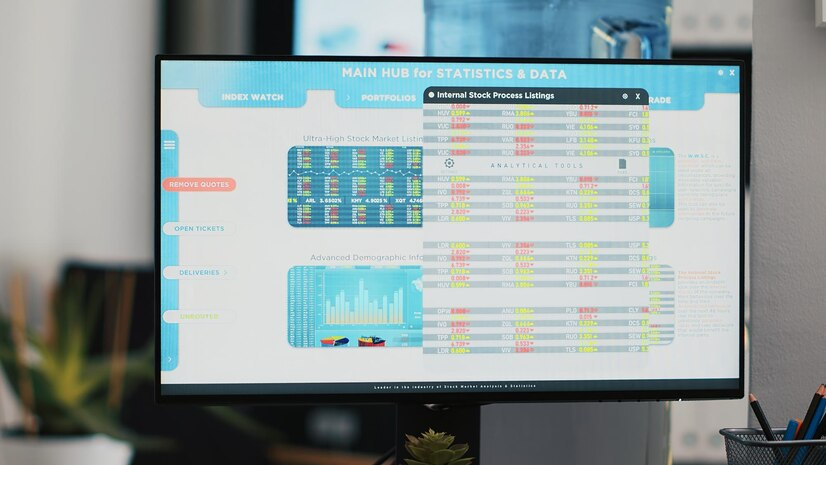Technology as an Essential Tool for Managing Protocols in Dental Clinics
- Admin

- Nov 26, 2024
- 3 min read

How to Use Technology to Improve Protocol Management in Dental Clinics: Automation, Data Analysis, and Essential Tools
Process Automation: Simplifying and Standardizing Tasks
Process automation is one of the main benefits technology offers for managing dental clinics. Management software enables operational protocols to be followed automatically and standardized, eliminating the need for manual oversight of many routine tasks. This includes everything from scheduling appointments to sending automatic reminders to patients, streamlining the workflow organization.
These systems also ensure that staff adhere to specific steps during treatments, such as sterilization and hygiene checklists, reducing errors and improving patient safety. Moreover, automation can be integrated with patients' electronic health records, ensuring that protocols are properly documented and followed during every dental procedure.
Benefits of Automation:
Reduction of human errors.
Increased operational efficiency.
Assurance of adherence to established protocols.
Agility in administrative and care processes.
Digital Document Management: Security and Accessibility
Digitizing documents, such as health records, consent forms, and treatment logs, has become fundamental for ensuring information security in dental clinics. Digital document management allows for centralized information organization, facilitating access for authorized professionals and ensuring compliance with data protection regulations, such as the LGPD (General Data Protection Law).
Additionally, using digital platforms to store documents simplifies auditing and protocol review. For example, when a treatment or safety protocol needs updating, all staff can be instantly notified of the changes, ensuring immediate and consistent implementation.
Advantages of Digital Document Management:
Quick and easy access to critical documents.
Reduction in paper use and operational costs.
Enhanced security for sensitive data storage.
Controlled access, ensuring only authorized professionals handle documents.
Data Analysis for Identifying Improvement Opportunities
Another significant advantage of technology is the ability to analyze large volumes of data to identify patterns and improvement opportunities. Clinical management software is equipped with analysis tools that track metrics such as average treatment time, patient return frequency, cancellation rates, and even individual staff performance.
Based on this data, managers can adjust care protocols, identify bottlenecks in processes, and improve patient experiences. For instance, if the software detects frequent delays or cancellations in specific treatments, the management team can revise related protocols to optimize patient adherence and clinical efficiency.
Applications of Data Analysis:
Evaluation of care protocol efficiency.
Identification of critical areas and improvement opportunities.
Team performance monitoring.
Data-driven strategic decision-making.
Integration with Other Systems: Connectivity and Synergy
One of the main challenges in managing dental clinics is integrating different technological systems. However, many clinical management software solutions now offer robust integrations with electronic health records, billing systems, marketing platforms, and even customer relationship management (CRM) systems.
The integration of these platforms creates a technological ecosystem that facilitates seamless data flow across different areas of the clinic. For instance, by integrating protocol management systems with electronic health records, all relevant information about a patient’s treatment can be accessed in real-time, streamlining both clinical and administrative decision-making.
Benefits of System Integration:
Centralized and synchronized information.
Faster patient care.
Reduction in data redundancies and inconsistencies.
Improved communication across various clinic departments.
Recommended Tools and Software
Several tools on the market can assist dental clinics in managing protocols. The choice of the ideal software depends on the clinic's specific needs, but here are some widely used recommendations in the industry:
Dental OfficeA comprehensive system for dental clinics, offering scheduling management, financial control, and electronic health records. Its intuitive interface and customization options make it a top choice for protocol management.
SimplimedA robust platform integrating electronic health records, billing, and document management. It allows automated workflows to ensure all procedures follow the clinic’s established protocols.
iClinicA cloud-based solution focused on accessibility and usability, offering scheduling, electronic health records, and financial control. It stands out for its easy integration with other platforms and real-time data analysis.
NinsaúdeSpecifically designed for the Brazilian market, Ninsaúde provides a complete solution, from appointment scheduling to digital document management. It also includes marketing and CRM tools for patient retention.
Doctor MaxFocused on data analysis and performance monitoring, Doctor Max offers features for tracking clinical and administrative indicators, aiding in continuous protocol review and operational optimization.
Conclusion
Technology is an indispensable ally for the effective management of protocols in dental clinics. From process automation to data analysis and system integration, the digital tools available on the market enable managers to optimize operations, reduce errors, and ensure compliance with care protocols.
By adopting specific software solutions for clinic management, it is possible to enhance efficiency, improve patient experiences, and achieve better operational outcomes.
For more information about our work and how we can assist your clinic or practice, feel free to contact us!



